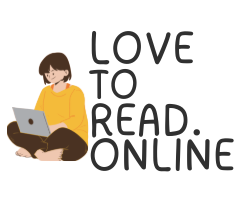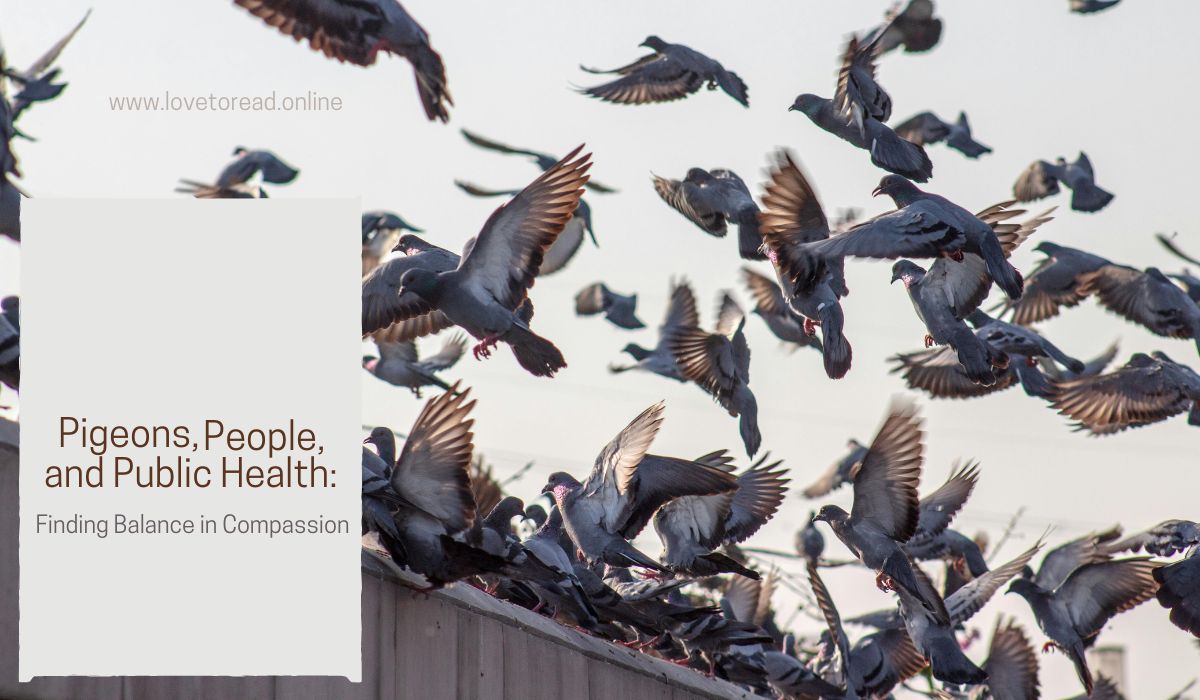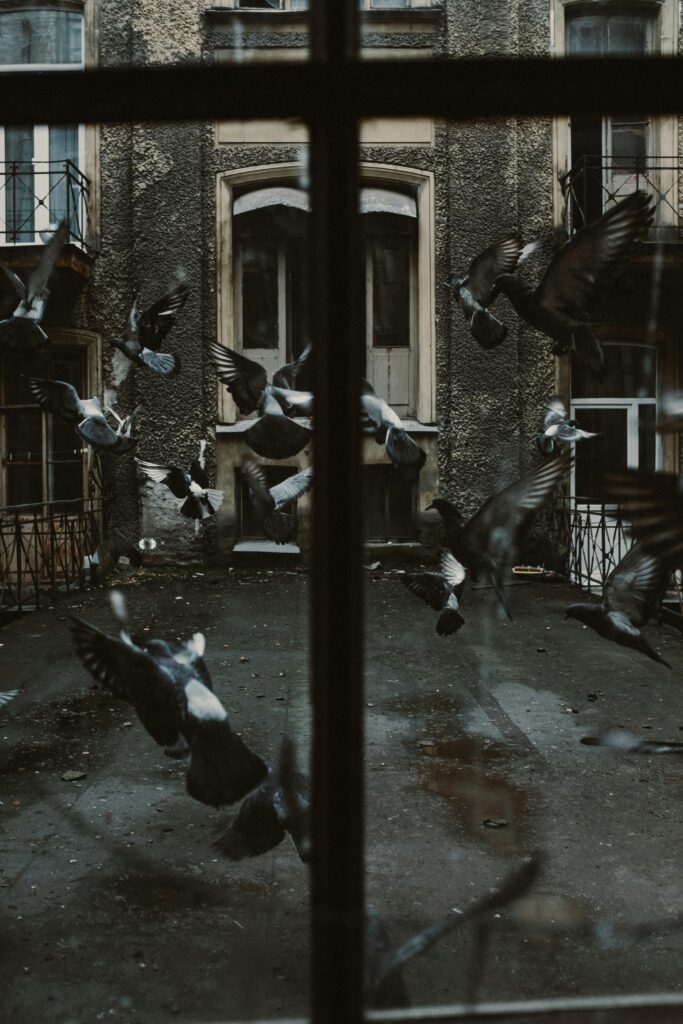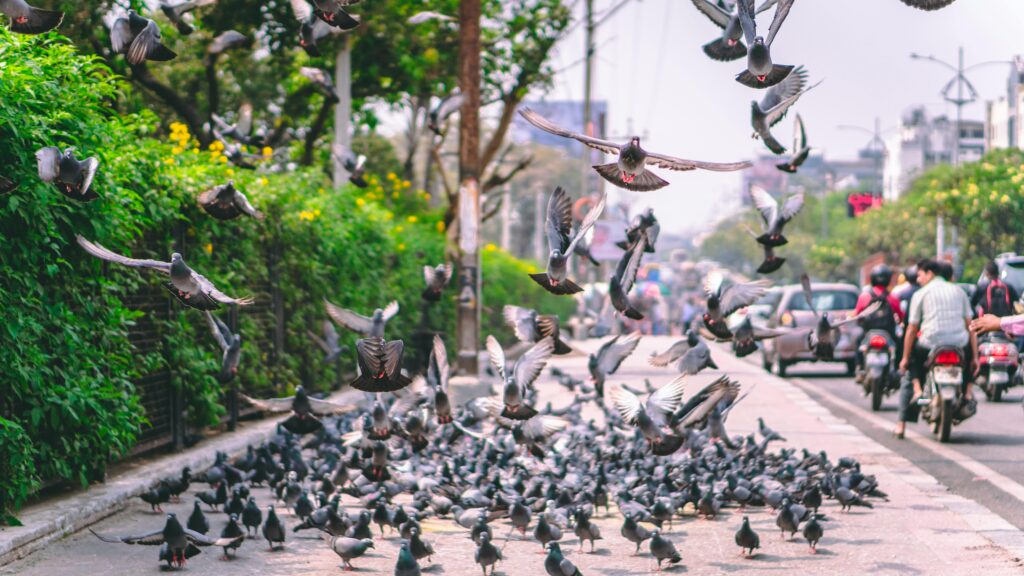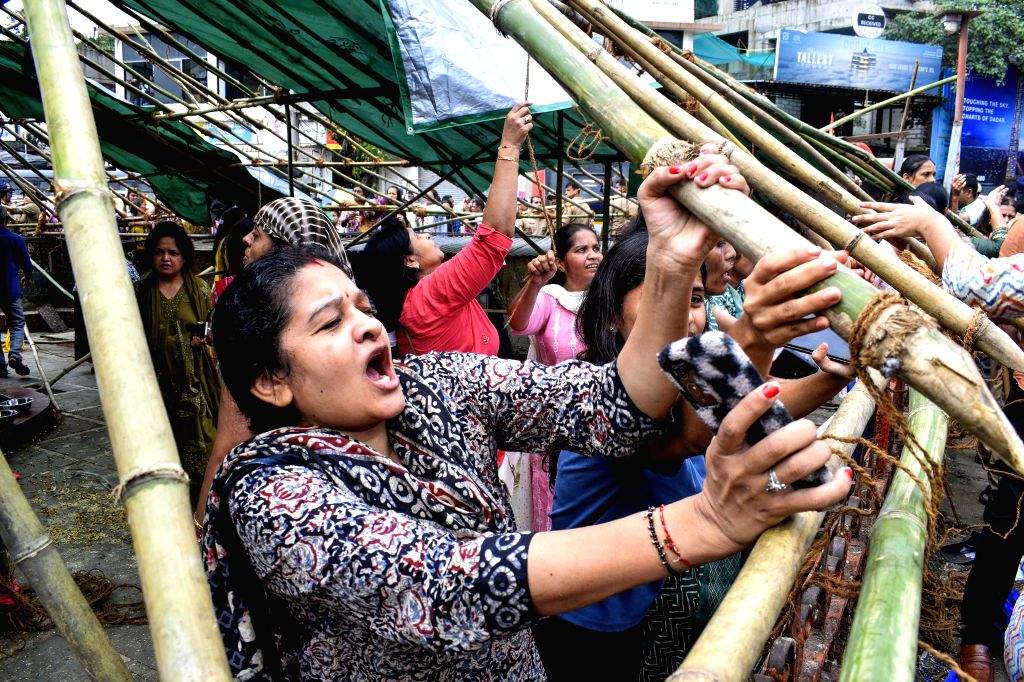In recent weeks, Mumbai has witnessed a new rule by the Bombay High Court regarding pigeons and Kabutarkhana. The Court has upheld the decision of the Brihanmumbai Municipal Corporation (BMC) to close Kabutarkhana and prohibit the feeding of pigeons in public places. The reason given is very clear and practical public health concerns.
While this decision has been welcomed by many citizens who are aware of the health hazards, it has also faced opposition from certain groups. A section of the Jain community, for whom feeding pigeons has been a religious and cultural practice, gathered at Kabutarkhana in Dadar and protested against the ban. In fact, reports even suggested that the protective covers placed by the BMC to stop pigeon feeding were broken in protest.
This entire issue has opened up an important conversation about public health, civic sense, responsibility as citizens, and the true meaning of compassion (Jeevdaya). Let us try to look at this matter with calmness and clarity, without hurting anyone’s sentiments, but at the same time remembering that we are all first citizens of India, responsible for the well-being of our society.
The Health Hazards of Pigeons
Many people may not realize, but pigeons are not harmless creatures when they exist in bulk in one place. Scientific studies have shown that pigeon droppings are breeding grounds for bacteria, fungi, and parasites. The most common health problems caused by pigeons include:
- Respiratory illnesses such as histoplasmosis, cryptococcosis, and psittacosis. These diseases are caused by inhaling dust contaminated with pigeon droppings.
- Skin infections and allergies due to direct contact.
- Asthma and lung problems triggered in children, senior citizens, and people with weak immunity.
- Public hygiene issues as droppings accumulate in crowded places, on roads, and even on food stalls.
If pigeons were scattered in nature, their presence would not cause such concentrated harm. But when they gather in huge numbers in Kabutarkhana or public squares, the risks increase many times. Mumbai, being a densely populated city, cannot afford to take these risks lightly.
This is why the Court took this decision not against a community, not against a tradition, but purely in the larger interest of public health.
Why Should We Allow Bulk Gathering in Public Places?
A natural question arises here. If feeding pigeons is scientifically proven to be harmful for human health, then why should we allow their bulk gathering in crowded public spaces?
- Our public roads, footpaths, and open squares are meant for citizens, not for permanent bird colonies.
- When pigeons gather in thousands, their droppings create slippery, unhygienic, and unsafe conditions.
- The city administration spends crores of rupees cleaning these areas, which otherwise could have been used for public welfare.
We all love birds. Many of us stop to admire sparrows, parrots, or even a single pigeon when we see them perched peacefully. But when a public health issue is involved, we need to prioritize people’s safety. After all, human life too is precious.
Responsibility as Civilized Citizens
When the Bombay High Court, which is the voice of law and justice, has already taken a decision after reviewing expert reports and the situation of the city, it becomes our duty as responsible citizens to follow it.
Civilization is not just about tall buildings and modern facilities. Civilization is about how we behave as a society — how we respect rules, how we balance our emotions with practicality, and how we take care of one another.
If the Court has directed the BMC to shut kabutarkhanas, then instead of protesting on the streets, the matter should be respectfully raised in Court itself through legal means. That is the democratic way. But taking the law into our own hands and breaking public property is not the right path.
Pigeons Are Wild Birds, Not Pets
Another important aspect to understand is that pigeons are wild birds. They are not our pets who depend entirely on us.
- Nature takes care of them, just as it takes care of sparrows, crows, eagles, and countless other creatures.
- Pigeons have survived for centuries before humans began feeding them in cities.
- Feeding them in unnatural bulk numbers actually makes them dependent and weak, instead of allowing them to thrive naturally.
If someone genuinely wishes to care for pigeons or any other bird, they are welcome to do so in their own private space like how people adopt and take care of dogs, cats, rabbits, or other animals. Compassion is beautiful, but it must be exercised in a way that does not harm society at large.
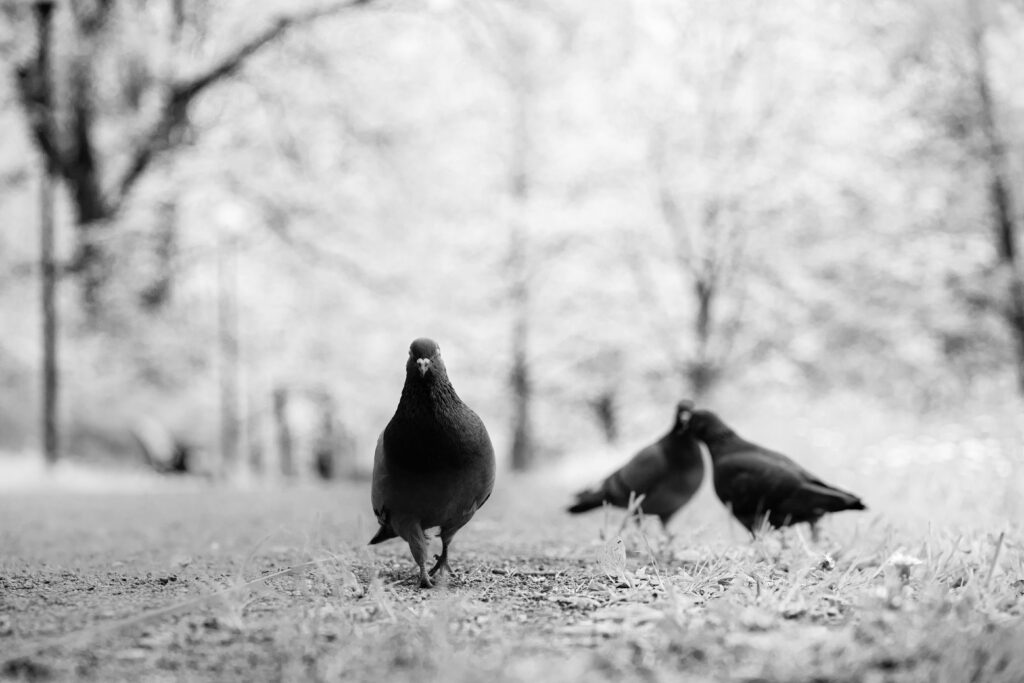
Communal Angle: A Sad Reality
What is truly unfortunate is that this matter is being turned into a communal or religious issue. The ban is not against any faith or community it is against a health hazard. But in today’s atmosphere, it has become common for people to find reasons to oppose one another.
In the name of Jeevdaya (compassion for all living beings), people are clashing with each other. But the real meaning of compassion is non-violence, care, and mutual respect. If we fight with humans in the name of protecting birds, then somewhere we are losing the essence of Jeevdaya.
Compassion should unite us, not divide us.

A Question of Priorities: What About Human Beings?
Let us also think deeply in Mumbai itself, and across India, lakhs of people sleep on the streets empty stomach. Homeless men, women, and children spend their nights under flyovers or on pavements. They too are living beings.
- Do we ever gather in large numbers to protest for them?
- Do we feel the same passion of Jeevdaya when it comes to human suffering?
- Can’t we redirect some of our energy, compassion, and resources to feed hungry children or support poor families?
Of course, many kind-hearted people do help the poor silently. They don’t announce their charity. They don’t need applause. Their deeds are genuine. And as the saying goes, “True charity is that which is done without expectation of recognition.”
But on a larger level, we must ask ourselves are we prioritizing rightly?
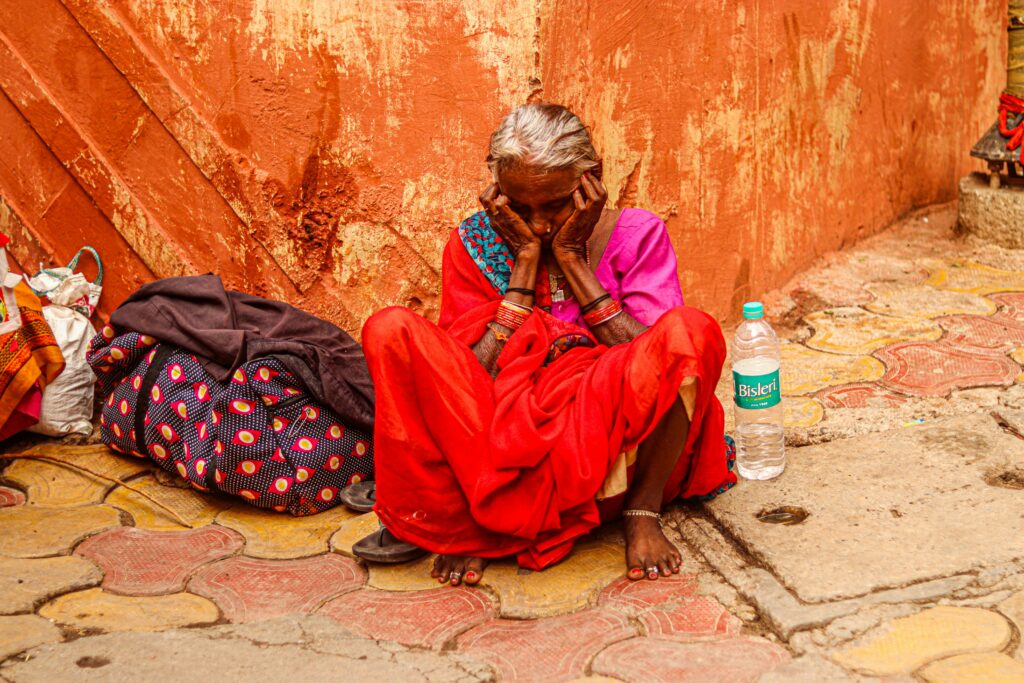
Compassion with Balance
This does not mean we should stop loving animals or birds. On the contrary, kindness towards animals is a mark of a good heart. But kindness should not come at the cost of public health or human well-being.
True compassion is balanced. It cares for nature while respecting human society. It knows how to love animals without creating problems for fellow humans.
For example:
- Planting trees to give natural shelter to birds is compassion.
- Keeping water bowls for birds in your balcony is compassion.
- Adopting a stray dog or cat is compassion.
But feeding thousands of pigeons in a crowded urban space, where their droppings spread diseases and make life difficult for citizens, cannot be called compassion. That is misguided emotion.
A Call for Understanding
The Bombay High Court has taken a decision after serious consideration. It is our humble request to all citizens, communities, and groups to accept it gracefully. Let us not turn this into a battle of egos or identities.
Instead, let us:
- Support the BMC in keeping our city clean.
- Educate people about the health risks of bulk pigeon feeding.
- Channel our compassion into meaningful acts of kindness for both animals and humans.
- Teach our children the true meaning of Jeevdaya compassion without conflict.
The pigeon feeding ban in Mumbai is not about religion. It is not about hurting traditions. It is about safeguarding the health of millions of people who share this city every day.
As citizens of India, it is our duty to respect the law, think rationally, and act with maturity. Pigeons are part of nature, and nature will continue to take care of them. But we must ensure that our compassion does not become a public health problem.
And finally, let us remember the highest form of compassion is for human beings who are suffering silently around us. Feeding a hungry child, supporting an elderly poor person, or helping a struggling family these too are acts of Jeevdaya, perhaps even greater than feeding pigeons.
In the end, compassion must unite us, not divide us. Let us strive for a society where kindness flows to all living beings but always with wisdom, balance, and humanity.
